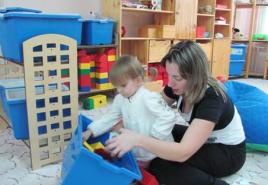The joy of doing nothing. The sweetness of doing nothing The pleasure of doing nothing italy
How can you describe Italy in words?
The curves of the streets, the beauty of heaven ...
She looks like a beautiful girl
Exciting thousands of hearts!
Everyone around is saying "See Paris and die!" And I proudly declare that nothing of the kind! To see Italy ... and leave your heart there, throw it along with 2 coins into the fountain de trevi, so that later you will definitely come back for it and hide it better! 
I left mine in Italy this spring.
The mini-plan for 7 days was as follows: Rimini-Venice-Rome-Florence-Siena (passing through) -Pisa.
Where do you start your trip description? It would be possible to start from the beginning, but more interesting from the end, because the size of the palace of miracles upset me a little, although we drove for a long time, like in a big city.
But! now I also have a super brilliant and unique photo with the Leaning Tower of Pisa;) 
Well, now you can and in order!
Why does everyone go to Italy first of all? Correctly. to eat delicious pizza! By the way, it is really divinely delicious there. 
And given the fact that it is served there by excellent Italians, I just don't want to get out of cafes ... 
But you need to be vigilant and do not forget that true Italians appreciate girls with beautiful figures, so a march step or along the Riminni embankments 
or along the small and cute streets of Rome. 
The most amazing thing is that walking around Rome every day for 6 hours we did not get tired at all, of course, any tourist simply must visit the Colosseum, the Vatican Museums, the Bridge of Angels, Plaza de España, (a divinely beautiful square !!), but besides that, we have opened for itself a lot of parks (for example, Borghese) and half-squares, which, in general, are hidden behind the next turn or behind a famous monument. 



To understand the true beauty of Rome, you need to go there, look at the leisurely strolling Italians from the cafe tables, listen to live music, taste the most delicious wine / pizza / pasta.
And then be sure to escape to measured Venice, at least for a day. To soak up the romance of the old city on the water. Hear how gondoliers sing, see a masquerade and buy a couple of masks, and of course take a ride on a gondola. 



But we decided not to stop at the tourist minimum, so there are 2 more charming towns:
1. Florence. The city with the oldest bridge and the most sparkling gold, of course cathedrals and a statue, and funny road signs! 


2. Siena. A city with a funny history. Everyone is united by a love for the races, for which they have been preparing for a whole year, the only thing that separates them is their adherence to different clans (turtles, eagles, hedgehogs, ...) here one more Romeo and Juliet may indeed be born, and maybe even a new Shakespeare, who knows ...) I bought one legend and still sat on the central square, promised that I would become smarter and more successful! 
I really didn't want to leave. And here again I am planning a new trip to the land of my dreams.
Py.Sy. I was very pleased that even in the Vatican museums there were familiar faces, maybe someone will find out ..) 
Training on the book by Elizabeth Gilbert. 40 Exercises for Finding Happiness Aber Maria
The joy of doing nothing
The joy of doing nothing
Italians are consummate masters of idleness. They even invented a special, beautiful and capacious expression - bel far nientewhich means " the joy of doing nothing».
Moreover, it's not that Italians are so lazy. And they can work hard! If they want to. Or if you desperately need to. But, unlike the northern Europeans and, even more so, the Americans, the inhabitants of the "sunny boot" always remember about the reward - about the blessed bel far niente... Any Italian knows: the more he works, the more inspired he will indulge in happy idleness.
For a North European and American, this logic is incomprehensible. Completely different messages have been introduced into their minds. For example: if you work hard, work even harder! Or: if you succeed in achieving your goal, set yourself a new one! Don't you dare drop out of the race. Think about work even on weekends and vacations. Well, and so on.
Of course, these same Americans have achieved incredible heights in terms of work, achieving goals, "making money", stress tolerance. Elizabeth Gilbert was no exception, although she chose, it would seem, the most free of routine writing path. Like many of her fellow citizens, she worked hard to literally fall off her feet and stare at the TV at the end of the day, and even more so at the end of the week. She dreamed of relaxing, but she could not relax. She looked at her acquaintances, colleagues and friends and saw that they, too, were rushing through life, as if they were routine, not noticing neither the sun overhead, nor the taste of food on the plate, nor the change of seasons.
A virus called "workaholism" has penetrated into the blood of people living in Russia. Penetrated dashingly and sat down firmly. Overtime work, stresses and deadlines, forays into the pub with the whole office, half-forgotten weekends, insomnia - all this is well known to thousands and thousands of residents of large cities who work at least in offices or at home.
In the race it is not clear why, weighed down with loans and obligations, we learned so well that "Must" and "must"that you completely forgot about "want".
And so, in Italy, over the second portion of pasta, accompanied by a conversation with new friends, Elizabeth Gilbert heard and remembered two phrases that express the essence of life in this country. At least in the Italy that Gilbert discovered. it "Bel far niente" "the joy of doing nothing" and "L'arte d'arrangiarsi" "the ability to make candy out of nothing".
So, "the joy of doing nothing." What is it? Professional idleness? A beautiful excuse for your own laziness? A day spent dumbfounded in front of the telly? Hanging out in the club? Of course not.
“The joy of doing nothing,” as Elizabeth Gilbert found out from her experience, is, first of all, the ability to enjoy the moment, to live “here-and-now,” the ability to relax and not worry about trifles.
With the seeming frivolity of the sound, the joy of doing nothing is almost a science, moreover, cunning. For us brought up and living in a culture where duty means much more than joy, it is not so easy to learn joyful idleness or inspired doing nothing.
In the healing environment of Italy, Gilbert managed to master this science. And then - not immediately, but gradually, step by step overcoming barriers and brakes on the way to "joyful doing nothing".
So, Elizabeth Gilbert discovered:
the right to "happy doing nothing" does not have to be earned... Like many Westerners, Elizabeth Gilbert believed that before resting, you need to work hard. And even after bargaining for a well-deserved rest, it must be spent with benefit and with obvious meaning.
It is not surprising that, having arrived in Italy for rest and pleasure, Elizabeth at first was tormented by an ancient, like the world, sense of guilt: and why did so much happiness suddenly fall on her? By her own admission, it seemed possible to her to enjoy herself only if she was given such an assignment or if she happened to scientifically investigate the mental processes responsible for joy and pleasure. Of course, with such a mood, there could be no question of any joy or relaxation.
Italians themselves helped Elizabeth Gilbert, convincing the guest in a friendly chorus: enjoying life is a normal, natural state of a person, and not at all a reward for the hellish labor preceding this.
To indulge in joyful doing nothing, you must first understand what brings you real pleasure. The more accurately you know your own needs, the more sensitively you feel desires, the more minutes of joyful doing nothing you add to yourself.
It was in Italy that, for the first time in her life, Gilbert began to ask herself seemingly obvious questions: “What do you want, dear, today? What can please you now? " Looking inward, she learned to hear sincere, discouragingly simple answers: "I want to stuff my stomach with delicious food and speak wonderful Italian as much as possible."
In other words, there is no need to go to an art museum if today the soul requires a trip to the store. You will not get pleasure anyway. It is better to wait for the moment when the soul wants to be nourished with beauty: then minutes, or even hours of joy are provided.
Joyful doing nothing does not mean that you are a frivolous, irresponsible, lazy person.... Indeed, sometimes it is better to do nothing, but joyfully, than to do stupid things with a serious face. Sometimes it is better to lie low and wait than to rush to something that should please, but, even though you crack, it does not. Sometimes it’s worth lazing around in order to make the right decision later.
In the case of Elizabeth Gilbert, this “should please, but not please” became children. More precisely, a hypothetical opportunity to give birth to children, become a mother of a family, settle down and live "like everyone else." It turned out that Gilbert traded her normal (in the minds of the majority) life for a trip without a return ticket, the carefree joy of every day and some kind of abstract search for herself and her place. Selfishness? On the contrary! Choosing “the joy of doing nothing” in Italy, clever Elizabeth took a time-out, time for reflection, time for an honest conversation with yourself... Is this not a real responsibility to your life and future generations?
The joy of doing nothing does not mean impenetrable idleness... Giving yourself the right (or, more precisely, returning yourself the right) to joyful idleness, you do all sorts of useful things as if by chance, without stress, without losing touch with the "here-and-now." Anyway, Elizabeth Gilbert achieved such a cheerful productivity, who, while lounging and enjoying food in Italy, nevertheless learned twenty new Italian words a day and even taught her friend English. And, importantly, not a single word in her Italian vocabulary was accidental or unnecessary.
Joyful idleness can be learned not only under the Italian sun. Several exercises aimed at a more conscious presence in the moment "here-and-now", at awareness and acceptance of your desires, techniques for relaxation and relieving anxiety will help you find a place within yourself where joy lives. Having mastered the basic principles of "the joy of doing nothing" and having won a little pleasant carelessness, you are unlikely to turn into a sloth, but rather, on the contrary, you will soon find that you have more than enough creative energy and creative ideas that require embodiment.
From the book Conflicts in the Family the author Kurpatov Andrey VladimirovichWHERE IS SHE, THE JOY OF LIFE? I am 28 years old, I have been married for 10 years. I have two sons: the eldest is 7, the youngest is 2 years old. I have a good, caring husband, he loves me and my children, an interesting job and a normal financial situation. From the outside, my life seems like a dream for many women. When I
From the book Child of Fortune, or Antikarma. A Practical Guide to the Luck Model the author Grigorchuk TimofeyJoy It is not necessary to rejoice strongly in achievements in principle. Usually, as they write in all these books on psychology: “you have to rejoice, you have to be positive!”. Gave a roll of toilet paper - rejoice like a moron! As practice shows, such chronic optimists
From the book Life is Good! How to have time to live and work fully the author Kozlov Nikolay IvanovichThe joy of every day If you eat one healthy and high-calorie buckwheat day after day, your soul will still ask for variety - or at least a little spice. The one who does it with Joy works most effectively. For visuals, this is the Brightness of Life. For kinesthetics - Taste.
From the book Recognize a Liar by Facial Expression by Ekman PaulCHAPTER 7. Joy
From the book Comprehensive Visual Diagnostics the author Samoilova Elena SvyatoslavovnaJoy Joy is one of the simplest emotions in terms of mimic expression. The simplest smile results from the contraction of just one pair of muscles - the zygomatic ones. When they contract, they pull back and slightly raise the corners of the mouth. A real genuine smile is usually
From the book Faith and Love the author Amonashvili Shalva AlexandrovichDo not extinguish my joy Dear friends, teacher-colleagues, I am joyful, and please do not extinguish my joy, and if you can, multiply it. I am joyful, because I discovered the Intimate Pedagogy, Pedagogy of the Classics and I call you so that you too got joy. It's just like
From the book My Child is an Introvert [How to Uncover Hidden Talents and Prepare for Community Life] by Laney Marty From the book Self-Tutorial in Psychology the author Obraztsova Ludmila NikolaevnaJoy This emotion is familiar to us, fortunately, no less than anger, but to give it a scientific definition, oddly enough, is much more difficult. It can be roughly described as an active positive emotion, expressed in a good mood and a feeling of pleasure (Quinn V.N.
From the book Friends, Rivals, Colleagues: Tools of Impact the author Gavener ThorstenJoy A characteristic feature of our society is the fact that there is much more scientific research in the field of negative emotions than in the field of positive ones. In the past, scientists were mainly interested in morbid mental states, not what does
From the book How to say no without remorse [And say yes to free time, success and everything that matters to you] by Brightman PattyThe Joy of Saying Yes Ultimately, the word no turns out to be very positive. Time, energy and money are precious resources that you should use as wisely as possible. The more of these resources will be spent on what seems important to you, the more
From the book Beyond Solitude the author Markova Nadezhda DmitrievnaHappiness is not a joy Further, her life was like a kaleidoscope, in which some pieces of glass were replaced by others. A gorgeous woman, with the beauty and divine body of Aphrodite, with a waterfall of golden hair falling from the waist down, she attracted men like a magnet. But all
From the book Intellect: instructions for use the author Sheremetyev KonstantinJoy The German philosopher Arthur Schopenhauer believed that joy in life is impossible. He wrote that life is a constant struggle with death, constant suffering, and all efforts to free oneself from suffering lead only to the fact that one suffering is replaced by another, then
From the book Praise Me [How to Stop Dependent on Others' Opinions and Build Self-Confidence] author Rapson JamesPassion and joy One has only to learn how to constructively conflict, and amazing things happen: relationships that seemed unsatisfactory or fading begin to really excite. And soon they become more joyful, light and sexy.
From the book An Unusual Book for Ordinary Parents. Simple answers to the most common questions the author Milovanova Anna Viktorovna From the book How to Tame Emotions. Self-control techniques from a professional psychologist author Zhukovets RuslanJoy The only one of all primary emotions that people tend to experience over and over again. Just like anger, anxiety or sadness, joy cannot exist on its own, it is the result of satisfied desire and therefore opposes them. Like other emotions
From the book of Mamamania. Simple Truths, or Raising with Love the author Popova-Yakovleva EvgeniyaThe Joy of Return Once, many years ago, I returned to Moscow from a short trip to the south. Moscow greeted me with rain and gusty winds, endless traffic jams and unfriendly airport staff. I then thought: why, when we
Food for Italians is like a religion, the words "cook well here" fascinate them.
Photo by Reuters
Autumn Milan, the smell of roasted chestnuts floats through the streets. I stop by the cart, hand the seller a few coins, and he scoops up a generous amount and pours hot flavored nuts into my bag. I was born and raised in Moscow, and the taste of chestnuts is still unusual for me, even exotic. I first tasted them in Paris many years ago, since then the smell of roasted chestnuts has become for me a symbol of autumn Europe. And what an autumn in Italy without an extensive menu with the addition of chestnuts! Risotto and all kinds of pasta with chestnuts, marmalade and sweets, polenta.
Italians can talk about food for hours: food is like a religion for them. The words Si mangia bene - “they cook well here” fascinate Italians. I once spoke with an entrepreneur about the problems of doing business during a crisis. We came to the conclusion that today there are many more opportunities for making a profit abroad. “But I won't be able to eat real Italian cuisine there, abroad Prosciutto di Parma has a completely different taste. And without my mom's traditional Sunday lunch, how can I do? " - my interlocutor expressed indignation. That is, money is money, but they do not want to give up the quality of life. And here I have already thought, perhaps in some way they are right.
From childhood, we were taught to work hard, achieve success, strive for career growth. And we are not used to enjoying life, every moment of it - wonderful food, good weather, the casual smile of a stranger on the street, just like that. It was in Italy that the concept of dolce far niente was born - sweet idleness. One Italian living by the sea told me: “I get up in the morning, open the window and admire the sea. You can not rush anywhere, the sea, the sun ... and work will wait! " Italians can sit for hours in a bar over a cup of coffee or a glass of wine, discussing how their favorite football team played or what insane taxes this Monti has imposed.
What I love Italians for is their cheerfulness. A mature, respectable man is able to talk about difficult economic issues and, after five minutes, laugh mesmerizingly at a successful joke. This is how small children laugh, not burdened with problems and worries. And on the streets of Milan and other cities, you can meet 70-year-old men dressed in a bright cyclamen sweater with a turquoise scarf to boot. By the way, oddly enough, men in Italy dress much brighter and more interesting than women. The most eye-catching colors - pink, blue, yellow - are more likely to be found in men's wardrobe, while women prefer black, however, in any case, it should be clothes of a very good cut.
But what is really important for women is the hairstyle. Despite the frugality caused by the crisis, Italians do not save on styling. A couple of times a week, a visit to the hairdressing salon is mandatory. Here you are met by a master who knows not only your preferences, but also your whole personal life. At first, I was shocked when, when visiting a hairdresser, the master asked me in detail about my marital status, work and even the amount of salary. To my indignation, my Italian husband calmly replied: “What do you want, we are open people. It’s you Russians, always with serious faces and don’t smile, it’s not clear what to expect from you. And we Italians are cheerful and sincere. "
In the salons you often meet older women, and this, alas, is not accidental. Italy is aging rapidly, and among European countries in terms of childbirth it is in one of the last places. Due to financial problems, Italians prefer not to have children, but to have dogs. For the first time in Milan, Turin, Rome and Palermo, the number of dogs exceeded the number of children. According to statistics, in Milan alone, there are about 82 thousand of these human friends, and children under the age of 6 - only about 72 thousand. Relations with four-legged pets have reached a paradox, they are treated like people, pampered. Despite the crisis, pet shops are thriving - the owners do not skimp on a special shampoo or a rare type of food. They dress up the dogs, buy strollers for them, prepare special food for the holidays!
However, the Italian oddities do not end there. Another mania is the urge to insert English words and phrases appropriately and inappropriately. And this guy is single and his look is cool. Let's all go to the meeting, where our director will tell us the speech. As once in the famous song of the 60s, which became popular thanks to a remake of recent years: Tu vuoi fa L "americano - you want to look American, but you were born in Italy! So Italians strive to be fashionable, although to make them learn at least one language, even that very fashionable English, is difficult, they are terribly lazy. “We already know two languages, - say the inhabitants of the Apennines, - Italian and Neapolitan.” And they are right in their own way, because each dialect is a separate complex language A Milanese speaking Milanese will not be understood by a Sicilian. The Genoese dialect looks like an explosive mixture of Italian with Arabic. About Russians and Slavs, Italians say that we just have a talent for languages. Without even knowing about our innate hard work: I learned three their foreign, like a first grader, writing out words and memorizing them every day.Italians often do not want to strain, they read very little. Recently, my friend proudly told that her Italian husband mastered l second book. We, Russians, strive to go to the theater, to the museum, but in Milan it is difficult to find a local resident who has visited La Scala at least once. I love to listen to classical music at the conservatory, but in Milan 80% of the conservatory's visitors are over 60 years old, there are practically no young people. Well, the favorite art form for the Italian is cinema, which, however, as we all know, is considered one of the best in the world history of this art.
So living with Italians is not easy. Often they are lazy and unnecessary, overly emotional and jealous, clinging tightly to their strange habits and attachments. And yet, is there a more attractive and joyful country in the world with a more charming and cheerful people than Italians?
More details.
"Happy hours are not observed" ...
In Italian, this phrase sounds: "il tempo vola quando ci si diverte!", Which literally translates: "time flies when you are having fun."
But be that as it may, know how to ask what time it is in Italian.
This is what we will do today.
Learning to ask about time
Today we'll figure out how to ask: “ what time is it now"?
We will learn how to answer this question, if suddenly we are asked "un italiano simpatico" o "un'italiana simpatica".
- In Italian, ask what time it is in two ways: singular and plural. The meaning, as such, does not change.
- In order to answer this question, we will also use the verb:"be" " essere"+ Definite article feminine" le "(plural) or" l '"singular h + numbers
- FROM for hours figured out, go over to minutes. To tell how many minutes we will use the following construction:
- To say "half" and "quarter" we will use the following expressions:
- To convey the Russian temporary concept ".. without": "twenty to eight", etc.
- To ask or say at what time something will happen, we need the preposition “a».
- 24 –sentry calculating the time of day, 24 hour format used in Italian when it comes to train timetables, television, and other business schedules... Instead of saying: "hour and half", when announcing the arrival or departure of a train, they will say: "13:30"
- Also to to clarify we are talking about an hour of the day or night, the following time indicators come to the rescue:
- To denote time interval: "from ... to", we will use the following construction:
- If you are a "puntuale" - "punctual" person, then the following expression will be useful to you: "Exactly" - "in punto»
But note that all hours are plural, except for the hour of the day and night, therefore, we will have the answer mainly in the plural, so it is more common to ask the question in the plural.
For this question, we need a verb already well known to us: "to be" - " essere»:
"Che ora è?" - what time is it now?
"Che ore sono?" -which thehour? What time is it?
So what does this circuit mean?
We have all clocks in the plural, except for the hour of the day and the hour of the night.
This means that we will put the verb in the plural: “ sono le»+ The hours we need
- Che ore sono? - What time is it now?
- Sono lenove - Nine o'clock
Just to say the hour of the day and the hour of the night, we will use the singular verb and, accordingly, we will also have a singular article:
È l’ una. – 1 pm and 1 am
Why is our article feminine?
Because the word for "watch" in Italian is feminine - " leore". One hour - "l'ora".
Italians often use the concept of "noon" and "midnight".
So these two concepts will also be used with the singular verb, and the article will not be put!
Che ore sono? - What time is it now?
È mezzogiorno. -noon (12 hoursof the day)
È mezzanotte. -midnight (12 hoursnights)
Verb + article + clock + conjunction " e»
+ number of minutes
That is, first we say how many hours it is now, as we discussed above, and then we add the union« e» — «
and "and the required number of minutes.
for instance:
Sono le dieci e dieci.–
It's ten o'clock and 10 minutes now.
Sono le nove e venti. -Nine hours and 20 minutes.
Sono le sei e cinque. -Six hours and 5 minutes.
« mezzo"- half
« unquarto"- a quarter
An indefinite article with a "quarter" is required !!!
"Sono le cinque e mezzo.» – Half past five.
"Sono le cinque e un quarto. " -Fifteen minutes past six.
“Half” can be said with the words: “ mezzo", but also "mezza».
But, attention!
« Mezza"- also means half of the first (half of the first) \u003d Mezzogiorno e mezzo, or mezzanotte e mezzo
È quasi la mezza - almost half past midnight
In Italian we will use the word: “ meno».
Starting from the minutes that pass after halfway, we can safely say what time it is using the expression “meno».
To do this, we call the next hour + "meno" + the number of minutes that are missing before this hour.
Verb + article + next hour + " meno» + number of minutes that are missing until the next hour
"È l'una meno dieci. " - Ten o'clock.
"Sono le due menoventi. " - Twenty to two.
“È mezzogiorno menoun quarto "- Quarter to 12, quarter to 12.
A che ora? –
at what time? - there can only be a single number
A che ora?
+ verb.
- A che ora mangi? - what time do you eat?
- A che ora finisci il lavoro? - at what time do you finish work?
- A che ora apri la banca? - at what time do you open the bank?
To answer this question we will also use preposition "a», But since we use the clock with the article, we have a merged preposition + article:
- All’
una... - at one o'clock in the afternoon or at one in the morning
For all other clocks, the following form will be used: " alle».
Alleotto di sera guardo la TV. - at eight o'clock in the evening I watch TV.
Arrivo alla lezione allenove. - I come to the lesson at 9.
And only in expressions: " at midnight" and " at noon", the article is removed and only pretext« a»:
A mezzanotte, sono stanco. - I'm tired at midnight. (at 12 o'clock in the morning)
A mezzogiono ho fame - I want to eat at noon. (at 12 a.m)
Il treno arriva alle quindici e quindici. - the train arrives at 15:15.
Sono le venti e cinquantacinque. - Now it is 20: 55.
In ordinary conversational life, they will say: Alle tre e un quarto, alle nove meno cinque.
di mattina -in the morning
di pomeriggio -of the day
di sera -evenings
di notte -nights
Ho lezione alle otto di mattina e alle tre di pomeriggio. - I have a lesson at 8 o'clock in the morning and at 3 o'clock in the afternoon.
Guardo la TV alle otto di sera. - I watch TV at 8 pm.
« dalle…. alle» — « from … by»
dalle cinque di sera alle quattro di mattina - from five evenings before four in the morning
dalle tre e mezzo alle nove - from half past three to nine
dalle dieci alle dodicisono in palestra - from ten to twelve I'm in the gym
Ho un appuntamento con Sergio alle quattro in punto - at me a meeting from Sergio smooth in four
Alle tre in punto - exactly three o'clock
"A mezzogiorno in punto" - exactly noon (exactly 12 noon)
A che ora ha la pausa pranzo? - what time do you have a lunch break?
Quando comincia a lavorare? - In which hours do you start working?
Quando finisce di lavorare? - What time do you finish working?
A mezzanotte Lei già dorme? - Are you already asleep at midnight?
Di solito in Russia a che ora aprono e chiudono i negozi? - Usually in Russia at what time do shops open and close?
A che ora comincia la pausa pranzo di solito? - At which hours does the break usually begin?
Di sera guarda la TV o legge un libro? A che ora finisce di guardare la TV? - Do you watch TV or read a book in the evening? What time do you finish watching TV?
Small digression, but molto importante:
Pay attention to the phrases: “you start doing something”, “you finish doing something”.
"Cominciare a fare qualcosa" - start doing something"Finire di fare qualcosa" - to finish doing something
After the verbs: "to begin" and "to end" there is a preposition.
In Italian there are a lot of verbs that, before another verb in the infinitive, require after themselves, the so-called "preposition-link". After which verb, which preposition to use, you must remember.
We will dwell on this a little later and analyze it in more detail. At this point, remember that after the verb « cominciarea»;
After the verb “finire"Before another verb in the infinitive there will be a preposition"di».
For instance:
Cominciare a mangare -start eating
Quando cominciamo a mangiare? -when will we start eating?
We put the verb "to begin" in the person and number in question + preposition + infinitive of another verb. The verb "eat" remains in the infinitive.
Cominciare a lavorare -to start working
Perché non cominci subito a lavorare? – why don't you start working now?
Finire di lavorare -finish work
A che ora finisci di lavorare? -what time do you finish working?
Finire di mangiare -finish eating
Tra cinque minuti finisco di mangiare.– i'll eat in five minutes. (I will finish eating )
Irregular verb "fare"
"Ma ci sei o ci fai?" - "What are you, a fool, or pretending ?!" or A useful and necessary verb: "fare" - "to do".
We know that in addition to regular verbs in Italian, there are irregular ones.
Friends, fare is an irregular verb. He will have other forms, he will not bend according to the rules that we learned for I, II, and III conjugations.
Io - faccio - "I do"
Tu - fai - "you do"
Lui, lei, Lei - fa - "he does, she does, you do"
Noi - facciamo - "we do"
Voi - fate - "you do"
Loro - fanno - "they make"
This verb is used in very many expressions, including stable ones. Let's look at what we need most at this stage.
fare il bagno - to take a bath
fare la doccia - take a shower
fare colazione - have breakfast
fare la spesa - make purchases (about products)
fare una passeggiata - take a walk (take a walk)
fare tardi - be late (not in time, be late)
fare presto - (by) hurry , (by) hurry up
abbiamo semper l’abitudine di fare un po ’tard i -at us habit constantly a little be late
Che cosa fai? - what are you doing?
Faccio una traduzione - I am translating
Facciamo una passeggiata - lets go for a walk
Cosa fai sabato? - what are you doing on Saturday?
Cosa fai di bello - what are you doing? what are you doing pretty?
Io non faccio niente - I do nothing
This verb is used when we are interested in where our interlocutor works: "what do you work for?"
Cosa fai? - What do you work?
Che lavoro fai? - What do you work?
In the answer, we can use the verb: “ fare", But we can also answer with a verb:" essere»:
Faccio il marinaio - I am a sailor.
Sono interprete, insegnante - I am a translator, teacher
Il mio fidanzato fa l'avvocato - my boyfriend is a lawyer.
Faccio il medico. - I am a doctor.
Io faccio la ragioniere. - I am an accountant.
Fai il cuoco? Ma che bravo! - are you a cook? What a fine fellow!
More examples:
- Mario, cosa fai? - Non faccio niente di interessante.
- Che cosa fanno queste belle ragazze? - sono occupate, lavorano.
- Oggi noi facciamo una lunga passeggiata.
Mario, what are you doing? - Nothing interesting.
What are these pretty girls doing? - they are busy working.
We will take a long walk today. (let's take a long walk)
And finally, everyone's favorite expression:
« il dolce far niente", Which means" pleasant doing nothing "," the sweetness of doing nothing "- such a characteristic highlight of Italians, their way of life
Lesson assignments
Exercise 1. Put the verb " fare"Into the required form:
- Mia sorella (fare) colazione al bar.
- Noi (fare) un lavoro interessante.
- Tu che cosa (fare) a Mosca?
- Che cosa (fare) Felice? - Lui (fare) il politico.
- Chi (fare) l’interprete?
- Luca (fare) l'avvocato? - No, (fare) l’attore
Exercise 2.
- Ciao, Anna! Cosa fai di bello?
- Niente. Guardo la televisione.
- Sei impegnata stasera?
- No, stasera sono libera.
- Facciamo una passeggiata insieme?
- Volentieri! E poi mangiamo una pizza! Va bene?
- Va benissimo! Brava!
Exercise 3. "Che ore sono?" - "What time is it now?" Write down the time in words:
- 8.10
- 3.30
- 1.15
- 4.40
- 11.25
Exercise 4. La routine del professor Daniele. The familiar life of Professor Daniel.
You need to make proposals, and indicate at what time and what our professor is doing.
Example :
mangia qualcosa (7.15)
Il professor Daniele mangia qualcosa alle sette e un quarto / alle sette e quindici.
- guarda il telegiornale (7.00)
- arriva all'università (8.35)
- inizia ( comincia) la lezione (9.05)
- incontra gli studenti (10.30)
- mangia alla mensa ( in dining room) (12.00)
- telefona a sua moglie ( wife) (2.15)
Exercise 1. Put the verb " fare"Into the required form:
- Mia sorella fa colazione al bar.
- Luca fa l'avvocato? - No, fa l’attore
Exercise 2. Read and translate the following dialogue:
- Hello Anna! What are you doing so pretty?
- Nothing. Watching TV.
- Are you busy tonight?
“No, I'm free tonight.
- Shall we walk together?
- With pleasure! And then we'll eat pizza! Going?
- Well! Well done!







